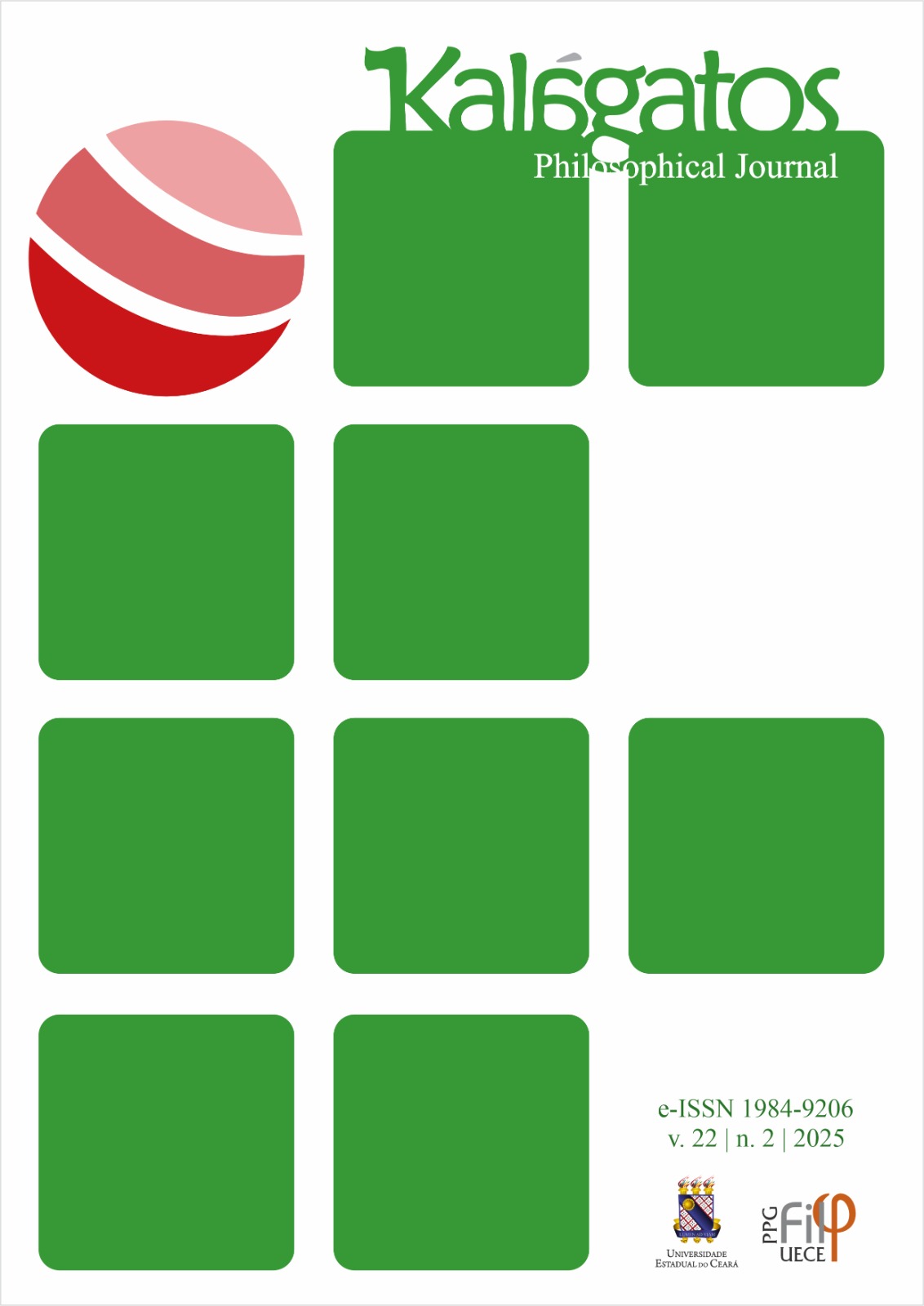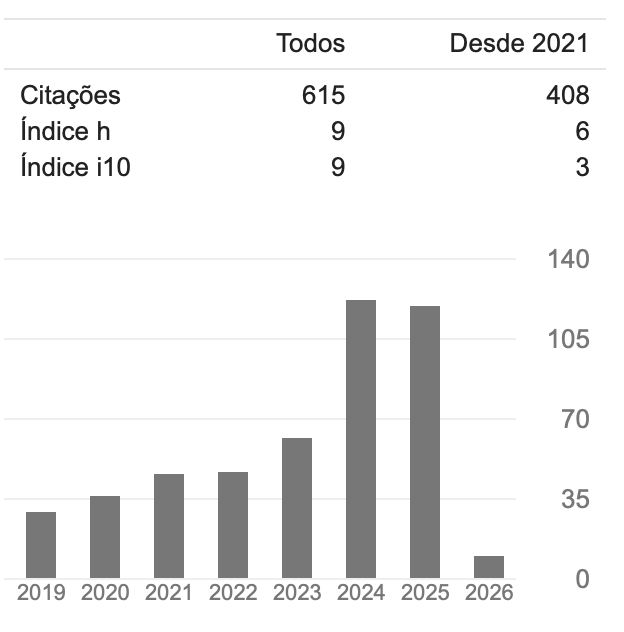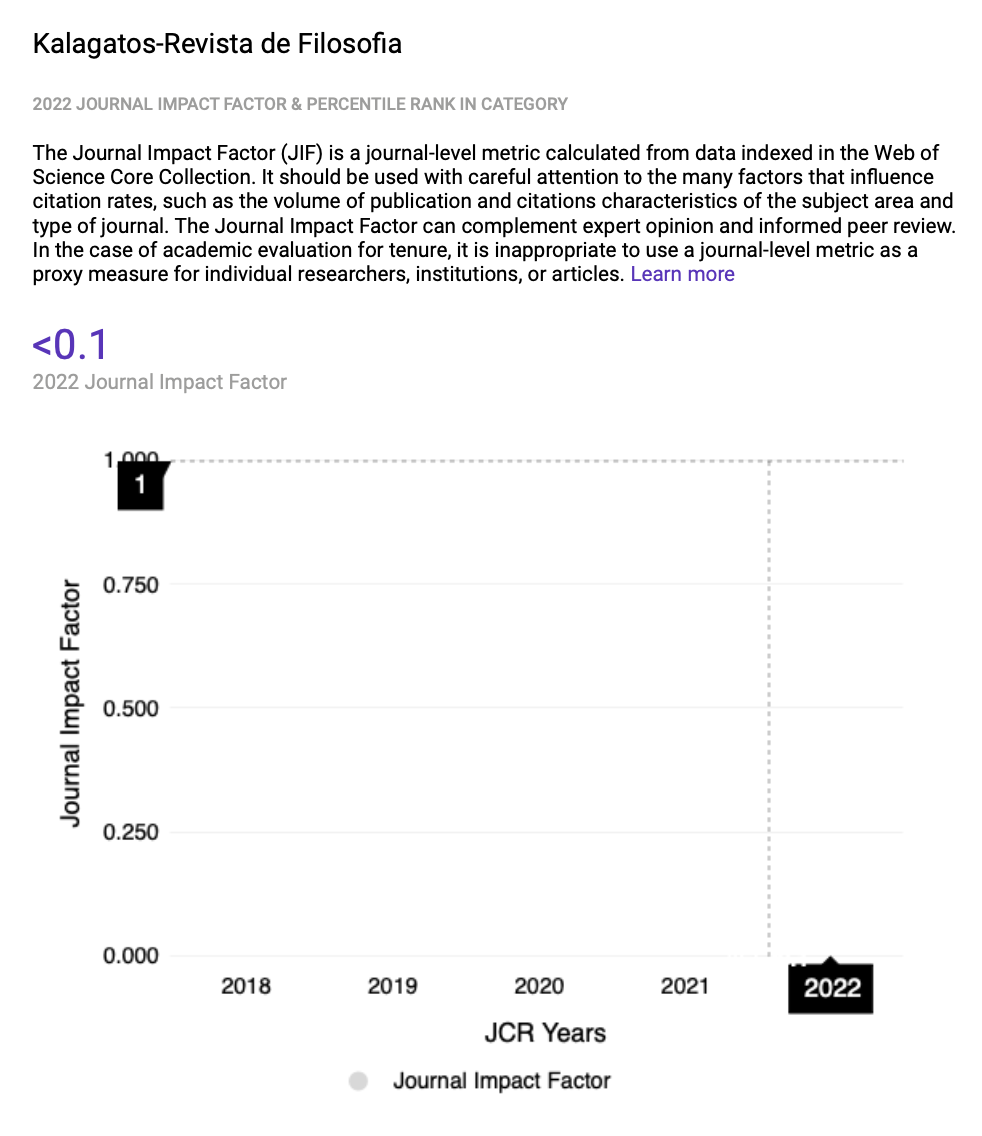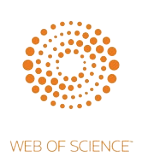The Dostoevsky’s Existential Philosophy: A New Contribution to freedom
DOI:
https://doi.org/10.52521/kg.v22i2.15245Palavras-chave:
Dostoevsky, existential philosophy, human spiritual freedomResumo
This paper highlights Dostoevsky’s existential philosophy, emphasizing his portrayal of characters who are perpetually tormented and deeply troubled in their search for the meaning of existence. Like other existential philosophers, Dostoevsky deeply respects human aspirations, even the humblest and most base desires in contemporary Russian society. Hence, Dostoevsky’s existential philosophy consistently emphasizes spiritual freedom. The new contribution presented here lies in analyzing Dostoevsky’s fundamental existential concepts, specifically his views on spiritual freedom and the process by which existential subjects achieve spiritual freedom. This article affirms Dostoevsky’s novel contributions to the category of freedom, including developments in understanding freedom, delineating paths toward authentic freedom, and through this, establishing the “Russian character” for the Russian people.
Downloads
Referências
AHO, Kevin. Existentialism. Stanford Encyclopedia of Philosophy. Available at: <https://plato.stanford.edu/entries/existentialism/>. Accessed on Mar 16, 2025.
AHO, Kevin; ALTMAN, Megan; PEDERSEN, Hans. The Routledge handbook of contemporary existentialism. New York/London: Routledge, 2024. https://doi.org/10.4324/9781003247791.
BAERT, Patrick. The existentialist moment: The rise of Sartre as a public intellectual. Cambridge: Polity, 2015.
CROPPER, Tod; BROWNE, Johnathan. The existentialist dilemma: Analyzing nihilism, anxiety, and self-identity in French philosophy at the end of the 20th century. Studies in Social Science & Humanities, v. 3, n. 1, p. 1-9, 2024.
DINH, Ngoc Thach; PHAM, Dinh Nghiem. Issues in Modern Western Philosophy. Hanoi: Labor Publishing House, 2024.
DO, Minh Hop. Existentialism, from a cultural perspective. Philosophy Review, v. 1998, n. 6, 1998.
DO, Minh Hop. Freedom and Responsibility in existentialist ethics. Philosophy Review, v. 2007, n. 12, p. 27-33, 2007.
DO, Thi Thuy Trang. John Stuart Mill's On Liberty – Historical Content and Values. Philosophy Review, v. 2021, n. 9, p. 39-47, 2021.
DO, Thi Thuy Trang; NGUYEN, Thi Thuy Duyen. The Separation of Powers in John Locke’s Political Philosophy. Synesis, v. 14, n. 1, p. 1-15, 2022.
DO, Trang. Jean Jacques Rousseau’s concept of freedom and equality in the Social Contract. Trans/Form/Ação, v. 46, n. 2, p. 305-324, 2023. https://doi.org/10.1590/0101-3173.2023.v46n2.p305.
DOSTOEVSKY, Fyodor. The Idiot. Hanoi: Literature Publishing House, 2002.
DOSTOEVSKY, Fyodor. The Brothers Karamazov. Hanoi: Labor Publishing House, 2007.
DOSTOEVSKY, Fyodor. Demons. Hanoi: Literature Publishing House, 2011.
DOSTOEVSKY, Fyodor. The Weak Heart. Hanoi: The World Publishing House, 2016.
HEIDEGGER, M. Being and time. New York: Harper and Row, 1962.
MAI, Thi Hanh Le. F.M. Dostoevsky’s views on spiritual freedom. Vietnam Social Sciences Journal, v. 2015, n. 8, p. 113-119, 2015.
MAI, Thi Hanh Le. Humanistic values in the philosophy of spiritual freedom of F.M. Dostoevsky. Philosophy Review, v. 2018, n. 4, p. 82-88, 2018.
MAI, Thi Hanh Le. Values in the thought of F.M. Dostoevsky. Vietnam Journal of Social Sciences, v. 2018, n. 6, p. 92-97, 2019.
NGUYEN, Quynh Thi; DO, Trang. Metaphysics of loneliness in Dostoevsky’s view of life: essence and issues posed. Synesis, v. 16, n. 1, p. 582-600, 2024.
NGUYEN, Tan Hung. Some contemporary Western philosophical and political thought trends. Hanoi: National Truth Political Publishing House, 2017.
NGUYEN, Thi Quynh; DINH, Ngoc Thach. The Analyzing Human Existence Through Fyodor Dostoevsky’s literary contributions. Kalagatos, v. 21, n. 1, p. eK24015, 2024.
NGUYEN, Thi Thu. Brief history of Russia from primitive to modern times. Hanoi: Education Publishing House, 1996.
NGUYEN, Tien Dung. Existentialism: History and its presence in Vietnam. Ho Chi Minh City: Ho Chi Minh City General Publishing House, 2006.
NGUYEN, Tien Dung. Existentialism and its influence in Vietnam. Journal of Social Science Information, v. 2019, n. 8, p. 13-21, 2019.
NGUYEN, Trong Nghia. Edmund Husserl’s Phenomenology and its presence in Vietnam. Hanoi: National Political Publishing House, 2011.
PETROV, Anatoly Ivanovich. Symbolism and Psychological Depth in Fyodor Dostoevsky’s Crime and Punishment and Its Influence on Modern Literature. Art and Society, v. 3, n. 2, p. 25-29, 2024.
PHAM, Vinh Cu. Dostoevsky - Career and legacy. Foreign Literature Magazine, n. 6, 2001.
SARTRE, J-P. Existentialism is a humanism. Indianapolis, IN: Hackett Press, 2001.
SAVELIEVA, Elena N.; BUDENKOVA, Valeriya E.; KRAEVSKAYA, Irina O. Fyodor Dostoevsky vs Karl Marx: personal freedom in existential and social dimensions. Слово. ру: Балтийский акцент, v. 15, n. 2, p. 47-66, 2024.
TRAN, Thai Dinh. Existential philosophy. Hanoi: Literature Publishing House, 2008.
TRAN, Thi Thao. Freedom in the philosophy of Jean Paul Sartre. Ho Chi Minh City: Social Sciences Publishing House, 2022.
Downloads
Publicado
Como Citar
Edição
Seção
Licença
Copyright (c) 2025 Trang DO, Quynh Thi NGUYEN

Este trabalho está licenciado sob uma licença Creative Commons Attribution 4.0 International License.



















